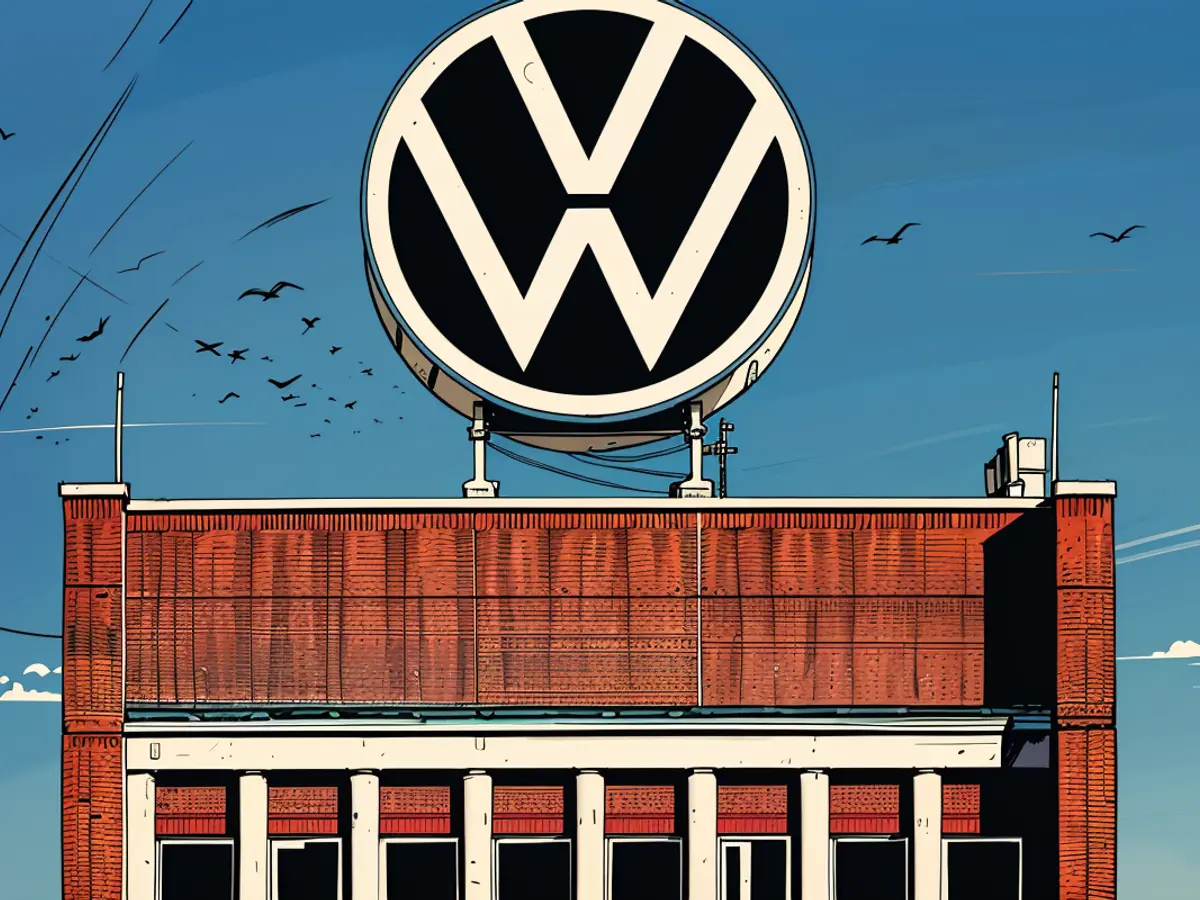- The Commission notes that the Commission has not yet decided whether the measures are compatible with the internal market.
Europe's largest automaker, Volkswagen, aims to pick up speed in the second half of the year after a weak first half. Thanks to numerous new models, the company expects noticeably better business in the remainder of the year, said CEO Oliver Blume at the presentation of the half-year results in Wolfsburg. "Especially in the fourth quarter," he added, expressing confidence that the company could achieve the annual targets it lowered just three weeks ago. However, the environment remains challenging.
In the first half of the year, Volkswagen suffered from weak demand for new cars, particularly in China, where the company sells about a third of its vehicles. Sales fell by 2.4 percent to 4.3 million vehicles, while revenue increased by 1.6 percent to 159 billion euros due to good earnings from financial services. "But what ultimately counts is the result," said CFO Arno Antlitz. And the profit after taxes plummeted by 14 percent to 8.5 billion euros. "That's not enough for our ambitions and is well below our capabilities."
Core brand Volkswagen remains a concern
The result was particularly affected by the loss-making core brand Volkswagen, whose operating profit shrank by 41 percent. This was mainly due to the costs of ongoing staff reductions. The company has set aside 900 million euros for severance payments of up to 474,000 euros per employee, half of which has already been committed. In the long run, this investment will pay off, said Blume. The recently launched efficiency programs must now be consistently implemented. "Now it's all about costs, costs, and costs. Especially for the Volkswagen brand, but also for all other brands."
Three weeks ago, the company reduced its targets for the full year. Instead of 7.0 to 7.5 percent of sales, the Volkswagen Group now aims for an operating result of 6.5 to 7.0 percent of sales, or 6.50 to 7.00 euros of profit per 100 euros of sales. The main reasons for this are the staff reductions at the core brand and the possible closure of the Audi plant in Brussels, which could cost the company 1.3 billion euros in the current quarter.
Factories reduce production
Due to weak demand, especially for electric vehicles, the company has also reduced production at other sites. Plants in Wolfsburg, Emden, Zwickau, and Audi in Ingolstadt and Neckarsulm have cut capacity by a quarter and eliminated expensive night shifts. This allows for significantly cheaper production in the remaining two shifts, said Antlitz.
In the second half of the year, Blume expects the car market in Western Europe to pick up slightly. However, it will remain challenging in China, where Volkswagen has struggled with booming electric vehicles. "We're having a tough year in China," he said. Last year, the company lost its market leadership there to BYD.
Blume hopes that numerous new models, including many electric vehicles, which the company plans to launch by the end of the year, will have the biggest impact in Europe. This, he hopes, will also increase the share of electric vehicles in the company. In the first half of the year, the company delivered 317,200 electric models worldwide, 4,400 fewer than in the same period last year, which was less than eight percent of all deliveries. The company aims to reach nine to ten percent for the full year.
Volkswagen, Blume hopes, will also help the corporation reach the EU's stricter CO2 fleet target of a 15% reduction next year. "There's still a gap to close," Blume admits. He wants to avoid penalty payments for missing the target. "Every euro paid in fines is a poorly invested euro." However, it's too early to tell if the expected increase in e-mobility will be enough to meet the goal. "We have to wait and see how the market responds."
Due to weak demand for electric cars, VW must also consider extending the lifespan of its internal combustion models, Blume admits. "We see the rise of e-mobility in Europe happening later than expected." Therefore, they need to increase flexibility and potentially extend the lifespan of current models. They might even launch a new internal combustion model. Blume didn't provide further details upon request.
The weak demand for new cars, including electric vehicles, led Volkswagen to reduce production at several of its factories, such as those in Wolfsburg, Emden, Zwickau, and Audi in Ingolstadt and Neckarsulm. (This sentence contains the word 'Car')
Volkswagen's core brand, which includes numerous car models, suffered significant losses in the first half of the year, with its operating profit shrinking by 41 percent. (This sentence contains the word 'Car')








